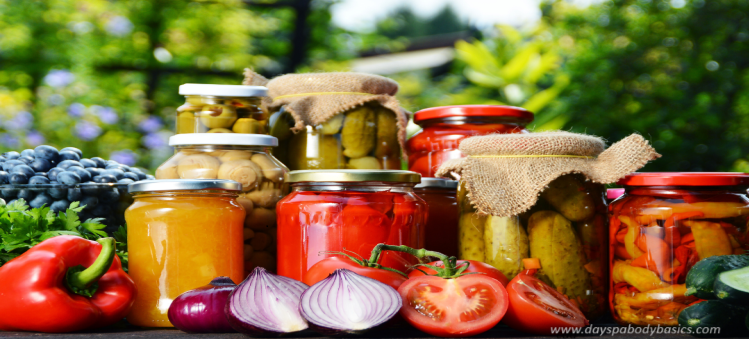Distilling the Future: Emerging Trends in the Extra Neutral Alcohol Market
06-Dec-2024

Introduction
Extra Neutral Alcohol (ENA), a high-proof, neutral-tasting spirit, plays a vital role in various industries, including alcoholic beverage production, pharmaceuticals, cosmetics, and industrial applications. This is why, the extra neutral alcohol (ENA) market has witnessed a remarkable evolution in recent years. As we embark on a journey to explore the promising advancements that await us in the world of ENA, we will delve into the innovative technologies and trends set to redefine the landscape of this versatile product.
Sustainable Sourcing: In the ever-evolving landscape of the spirits industry, sustainability has emerged as a fundamental guiding principle. This shift towards sustainability is poised to redefine the extra neutral alcohol market, focusing primarily on the responsible sourcing of raw materials. As the industry journeys into the future, we can anticipate a pronounced emphasis on eco-friendly agricultural practices and resource management that adhere to ethical standards and stringent environmental regulations.
The promise of sustainability in the ENA market is not only to create high-quality alcohol but to do so while minimizing the industry's impact on the environment and fostering a more ethical and sustainable future. As the industry progresses, the adoption of eco-friendly practices in raw material sourcing will not only meet the growing consumer appetite for sustainable products but also stand as a testament to the industry's commitment to a cleaner and more responsible future.
For instance, in July 2023, the United Nations Development Programme (UNDP) India and a bioscience company Absolute joined forces to advance sustainable agricultural practices. This partnership promotes eco-friendly farming methods and responsible sourcing, contributing to environmental conservation and overall industry sustainability. This initiative showcases a growing commitment to environmentally conscious practices, including the ENA production sector, emphasizing a more sustainable and responsible approach.
Advanced Distillation Techniques: The distillation and purification processes in the ENA industry have undergone a significant evolution, setting the stage for a promising future marked by even more efficient and environment-friendly methods. The purification techniques are developed to become more precise and sustainable than before. The introduction of advanced yeast, enhanced filtration, and purification methods will not only improve the quality of the final product but also significantly reduce waste generation. This waste reduction aligns with the overarching sustainability goals that are central to the ENA industry.
A key aspect of future advancement is the emphasis on reducing the environmental footprint of ENA production. This involves exploring alternative energy sources, optimizing resource utilization, and minimizing emissions. Distilleries are adopting cleaner technologies that contribute to a more eco-friendly and sustainable production process. As the industry continues to embrace technological advancements, these improvements are poised to yield various benefits, including higher production, reduced wastage, and enhanced cost-effectiveness. This, in turn, will usher in a new era of ENA production, which is both sustainable and economically viable.
For instance, in July 2022, Novozymes, a global leader in bio innovation, introduced a range of yeast innovations to revolutionize the ethanol sector by enhancing efficiency and sustainability. Novozymes' cutting-edge technology aims to reduce energy consumption and boost ethanol yields while focusing strongly on reducing greenhouse gas emissions. This development marks a significant step towards more sustainable and eco-friendly ethanol production. It aligns with the growing global commitment to renewable and environmentally responsible fuel sources. The introduction of these yeast innovations signifies a promising shift in the ethanol industry's pursuit of efficiency and environmental conservation.
Regulatory Changes: The favorable government policies and tax exemptions in the production of ENA play a pivotal role in shaping the dynamics of the spirits industry. The government of numerous countries is introducing policies promoting ENA production, including reduced or waived excise duties and taxation on ENA production. This reduction in the tax burden allows distilleries to allocate resources more efficiently than before, investing in the improvement of production processes, quality control, and sustainability practices.
Additionally, these favorable policies create an environment that encourages innovation. Distilleries are incentivized to explore new technologies, ingredients, and production methods. This experimentation can result in the creation of distinctive and high-quality spirits. This innovation benefits producers and resonates with a diverse consumer base that demands novel and exceptional products.
For instance, in October 2023, the Indian government approved a tax exemption of ENA from the Goods and Services Tax (GST). By excluding ENA from GST, the government aims to simplify the tax structure and reduce the financial burden on producers of ENA and alcoholic beverages. This decision is anticipated to promote the growth of the ENA and alcoholic beverage sector.
Technological Innovations: In the ever-evolving landscape of the spirits industry, technological advancements continue to be a driving force, reshaping the production of extra neutral alcohol. Automation is an avenue, in which technology is poised to have a substantial impact. Advanced robotics and machine learning systems are increasingly employed to streamline the production process. This can lead to greater precision in distillation and purification processes, minimizing human error and resulting in higher-quality ENA.
Moreover, the introduction of innovative devices and sensors to test ethanol represents a vital step in ensuring the quality of the final product. These sensors can provide real-time data on ethanol content, purity, and other key parameters. Such technology enhances the precision of quality control and allows immediate adjustments in the production process, ensuring consistent and high-quality ENA.
Alternative Raw Materials: The evolving consumer preference has given rise to the burgeoning popularity of alternative raw materials for the production of extra neutral alcohol, such as fruit-based ENA and ENA derived from agave. Traditionally, grains and sugarcane have been the primary sources of ENA. However, as consumer palates become increasingly sophisticated and adventurous, distillers explore new avenues. Fruit-based ENA, harnessed from several fruits such as apples, grapes, or cherries, provides a unique fruity essence to spirits that distinguishes them from conventional offerings.
Moreover, ENA sourced from agave, famous for its association with tequila production, is another emerging trend in the ENA industry. The popularity of agave-based spirits is already evident, and its application in ENA production has the potential to further enrich the market's diversity. The demand for these alternative raw materials extends beyond their unique flavor profiles. They also align with the broader trend of sustainability. It helps combat food waste, while agave-based ENA promotes a more resource-efficient approach to spirits production. This resonates with the increasing environmental awareness of both consumers and distilleries, making these alternatives even more appealing than before.
Conclusion
In conclusion, the extra neutral alcohol (ENA) industry is undergoing a significant transformation. As the industry advances, the promise of sustainable sourcing and eco-friendly agricultural practices holds the potential to shape a more responsible and ethical future. Advanced distillation techniques and reduced waste generation are central to not only improving the quality of ENA but also reducing its environmental footprint. This shift towards sustainability encourages the industry to explore cleaner technologies and alternative energy sources, aligning with global commitments to environmental responsibility.
Government policies and tax exemptions are crucial in incentivizing innovation and streamlining production processes. This favorable regulatory environment fosters experimentation, resulting in unique and high-quality spirits that resonate with a diverse consumer base. Technological advancements, particularly in automation and quality control, promise a future of higher precision and consistency in ENA production.
These innovations enhance the industry's efficiency while contributing to its environmental sustainability. As the ENA industry continues to evolve, it embraces these advancements to meet the demands of a more environmentally-conscious consumer base and to shape a future that is both sustainable and economically viable.
About the Author
 Arjun Chetry is an accomplished researcher and writer with a history of more than three years of conducting thorough research. With a professional background as a market researcher, he has a keen eye for analyzing industry trends and understanding consumer behavior. His dedication to exploring diverse subjects and conducting in-depth analyses has equipped him with a deep understanding of research intricacies. He remains committed to staying up-to-date with the latest market trends and recognizing their impact on business and society. His well-rounded interests and experiences contribute to his ability to offer insights and perspectives on a wide range of topics. The author can be reached at info@nextmsc.com
Arjun Chetry is an accomplished researcher and writer with a history of more than three years of conducting thorough research. With a professional background as a market researcher, he has a keen eye for analyzing industry trends and understanding consumer behavior. His dedication to exploring diverse subjects and conducting in-depth analyses has equipped him with a deep understanding of research intricacies. He remains committed to staying up-to-date with the latest market trends and recognizing their impact on business and society. His well-rounded interests and experiences contribute to his ability to offer insights and perspectives on a wide range of topics. The author can be reached at info@nextmsc.com
Add Comment
Related Blogs
New Era is Here: Revolution Underway in the Food Preservative Industry
Introduction The Food Preservative Industry is undergoing...
Discover The Recent Trends of The Travel Retail & Duty-Free Industry
The travel retail & duty-free industry offers a tax-exem...










